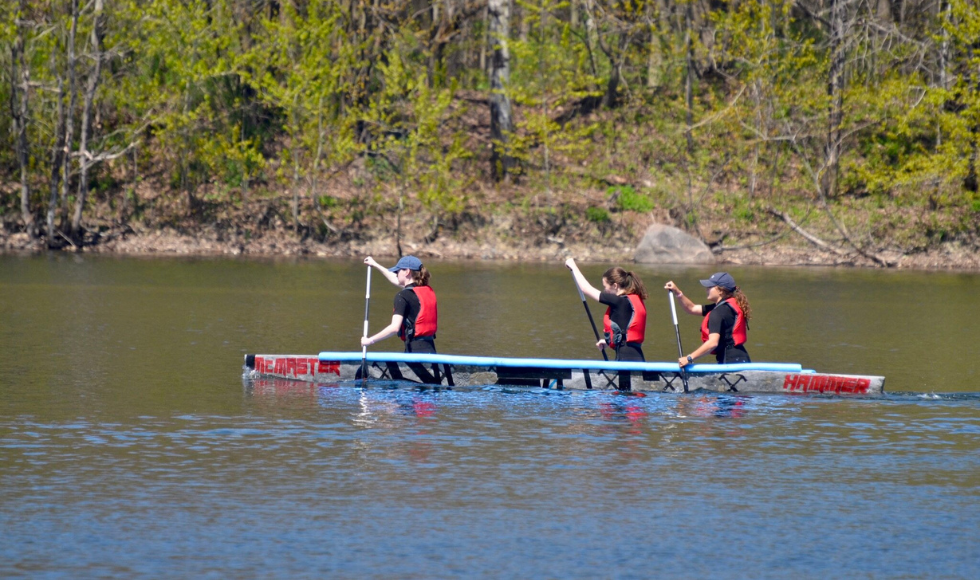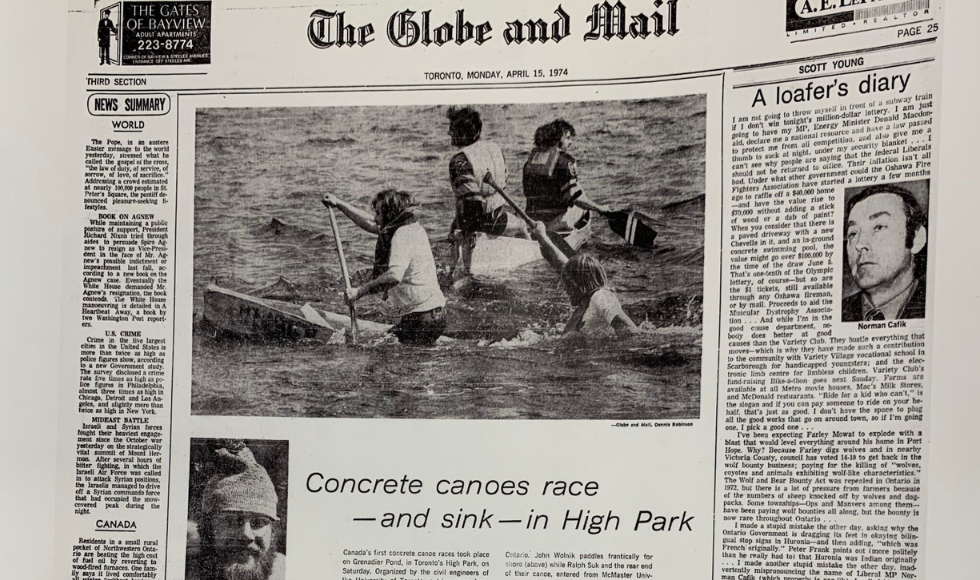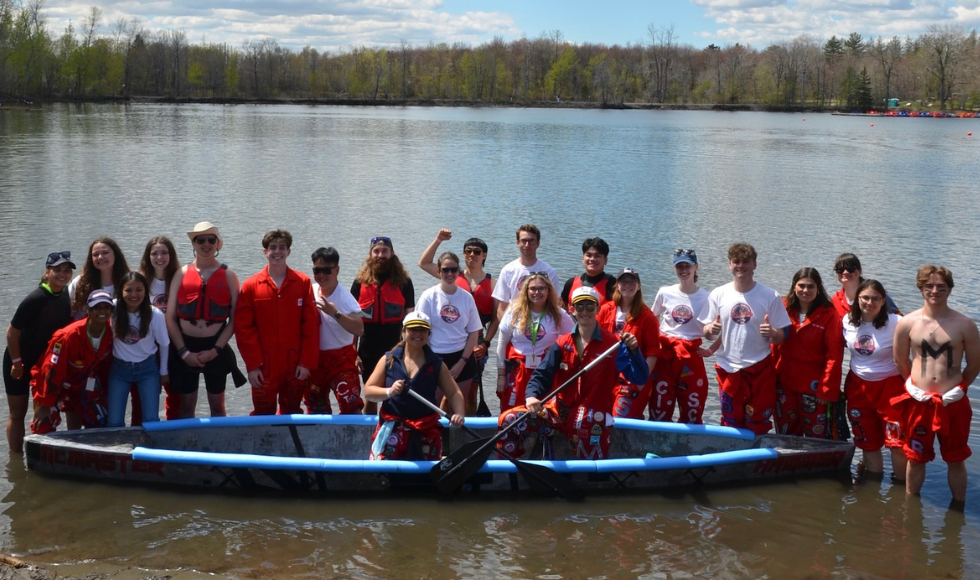Back in the paddle: McMaster concrete canoe team returns, makes waves

Fifty years after the university's first — and only — showing in the national competition, McMaster engineering students were back in the water.
For the first time in nearly 50 years, McMaster University’s Concrete Canoe Team has returned to the water, making a splash at this year’s Canadian National Concrete Canoe Competition (CNCCC).
Placing 15th overall out of 19 teams, the team was led by founding co-captains and engineering students Samantha DiMauro and Mack Wallhouse.
Despite the late start — they only got started in November, when other schools’ projects were well under way — and facing a steep learning curve, the team excelled in several events, securing eighth place in the 200-metre female sprint, 10th in project proposals and 11th in the oral presentation.
Reviving old traditions
On a visit to the University of Victoria, DiMauro saw the students’ concrete canoe and started thinking about the possibilities at McMaster. What started as a casual conversation with Wallhouse quickly turned into a serious endeavour. The pair embarked on an ambitious journey to build a competitive concrete canoe from scratch in less than half the time other competing schools had.
“We saw how massive the competition teams were at other schools and knew that with some of our time and effort, and a great deal of faculty and student support, why shouldn’t we have a team at McMaster?” says DiMauro.
What they didn’t know at the time was that McMaster once led the pack with one the first university concrete canoe teams 50 years ago. They competed in the first-ever Canadian National Concrete Canoe Competition in 1974 — and never after that.

“Knowing that McMaster’s Concrete Canoe team was already a part of the history of the CNCCC, it’s so exciting to be able to reignite this tradition and bring the competition to even more McMaster Engineering students,” says Wallhouse.
The 2023-24 team attracted more than 70 students, with 24 dedicated members making it to the competition. The diverse group included students from various disciplines, bringing together a broad spectrum of McMaster’s engineering talent.
Learning beyond the classroom
The construction of an 18-foot concrete canoe is no small feat, involving sophisticated engineering techniques and collaboration.
Students gained invaluable hands-on experience as they applied classroom knowledge to real-world challenges involved in the project. They honed their skills in creative problem-solving, teamwork and technical documentation, preparing them for future careers in engineering.

The team focused on two primary areas of technical design: structural hull design and concrete mix design. The Hull Design team used 3D modelling, Finite Element Analysis (FEA) and Computational Fluid Dynamics (CFD) to optimize the canoe’s shape for balance, speed and structural integrity.
The Mix Design team experimented with different concrete compositions to achieve a mix that was both lightweight and strong, aiming to come close to the density of water while ensuring durability.
“It’s been a great opportunity for us to apply and pass down our engineering skills towards something tangible, fun and exciting,” says Wallhouse.
“The competition has also given us opportunities to network and learn from teams from other universities across the country, sharing our insights and challenges we faced with one another and connecting with other engineering students.”
As DiMauro and Wallhouse, who both graduated in June, embark on the next steps of their journey, they pass the torch to new captains Ally Seow and Patricia Owen.
With their inaugural competition behind them, the McMaster Concrete Canoe Team is even more motivated. In preparation for the competition in Manitoba next year, they plan to leverage the knowledge and connections from this year to improve their performance.
Their goals include breaking into the top 10 for various categories, enhancing team marketing and fostering a vibrant and supportive community within McMaster Engineering.
“We’re very grateful to everyone who supported us with this crazy idea,” says DiMauro. “Our executive team; our faculty advisor, Ousmane Hissiene; the shop techs at the Applied Dynamics Laboratory, Paul and Kent; and the McMaster Engineering faculty who gave us the resources and support to be able to make this dream a reality!”
Learn more about the Concrete Canoe Team at McMaster.

